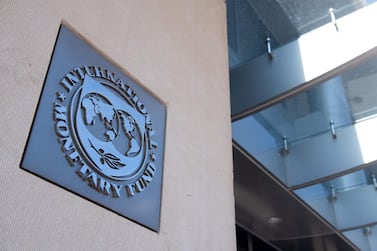The economies of large parts of emerging markets and developing countries (EMDEs) are at risk of long-term damage as pandemic-induced recession and lower oil prices may severely erode productivity, impacting energy exporting nations and those facing financial challenges.
Over the five-year horizon, a recession combined with a financial crisis could lower potential output in an average EMDE, by about 8 per cent. An average EMDE energy exporter could see its potential output shrink 11 per cent due to the recession and lower oil prices, according to the World Bank group's Global Economic Prospects report.
Private investment, a hallmark for these countries in the past decade, may also be affected due to the pandemic. Human capital will be eroded as unemployment rises, while trade linkages and supply chains could see permanent changes, the report added.
“[The] Covid-19 and the resulting recessions, engulfing vast swaths of the developing world, will leave lasting scars, eroding productivity and potential output for extended periods,” the report said. "The long-term damage will be particularly severe in economies that suffer financial crises, and in energy exporters because of plunging oil prices."
The coronavirus pandemic has severely impacted the global economy, which is set to contract by 3 per cent this year and slide into the deepest recession to date, according to the International Monetary Fund. The outbreak has led to wide-spread movement restrictions that have disrupted global supply chains, halted air travel and forced governments to close borders and shut all but essential businesses.
Oil prices slumped 60 per cent in April from their January peak as lockdown measures to contain the virus crimped demand for petrol and jet fuel, adding to existing volatility in an already oversupplied market. West Texas Intermediate – a composite benchmark of light, sweet US crude grades – fell below zero to briefly trade at -$40 last month, as storage capacity dwindled.
Prices have since stabilised after the Opec + alliance of oil producing nations, led by Saudi Arabia and Russia, agreed to cut output. Brent, the benchmark for more than half of the world’s crude, is trading near $40 per barrel, while WTI is hovering around $36 per barrel range.
In the wake of current restrictions on a broad swath of economic activity globally, low oil prices are unlikely to do much to buffer the effects of the pandemic. However, they may provide some initial support for a recovery as restrictions are removed gradually, the Washington-based lender said.
Last month the International Energy Agency said oil demand in April shrank by 29 million barrels per day, one-third lower than for the same period last year. It was the lowest monthly level since 1995.
Governments and central banks have poured an estimated $8 trillion (Dh29.4tn) into the global economy to support businesses and stem job losses. Economies in Europe, North America and Asia are now trying to gradually open up, four months after the World Health Organisation declared Covid-19 a pandemic. Additional stimulus packages are being rolled out to support the worst-hit sectors such as travel and tourism and the aviation industry.
While steps were taken to soften the impact of the pandemic on economies, policies are needed to avert the long-term economic damage, World Bank group president, David Malpass, said.
To make future economies resilient, countries, especially poorer nations, will need systems that can build and retain human and physical capital during the recovery. Current estimates show that 60 million people could be pushed into extreme poverty in 2020 and these numbers are likely to rise further, he said.
“The scope and speed with which the Covid-19 pandemic and economic shutdowns have devastated the poor around the world are unprecedented in modern times,” Mr Malpass said.
“Policy choices made today – including greater debt transparency to invite new investment, faster advances in digital connectivity, and a major expansion of cash safety nets for the poor – will help limit the damage and build a stronger recovery.”








